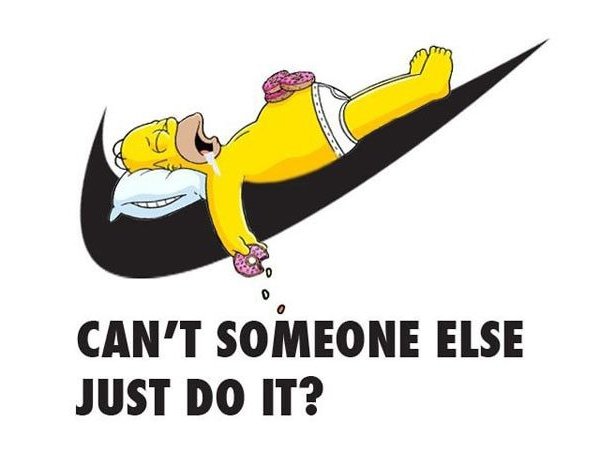30 Day Challenge - Top 3 Methods to Develop Good Habits (Day #7)
"Laziness is nothing more than the habit of resting before you get tired."
- Jules Renard
We've all been there. Staring into the depths of your screen wondering where the past hour or more has gone. Surfing Facebook, YouTube, Twitter and the like. Time flies and no work is achieved. It can leave you feeling disgruntled and doubtful about the future. Science indicates that there are tangible triggers that your mind associates with a hard working day. I've taken it upon myself to study the best habits and how to develop them starting from today.
1. Create a Schedule (& stick to it)
The most elementary of approaches and yet the one that I notice has been of most use personally. Starting your day with no idea about where you're going to work, what you're going to work on or even what time you start, is simply fraught with danger. These must be set in stone and abided to. I set aside a half hour on the weekend to write down exactly this information. As Ameer Rosic often suggests, time chunking is another appropriate method in improving our work efficiency. Thus, when I settle down to write out my schedule, I will be specific to the hour about what needs to be done and when. Incidentally, its worth recognising that we are all humans and the chances of us working efficiently over a prolonged period of on a singular item are slim to null. The focus should be working as efficiently on the one project for the allotment of time and then replicating that form tomorrow. During my thesis writing, I've come to accept the fact that I'm unable to write for more than 5 hours a day. Days spent past this threshold have seen little progress. In fact, the frustration component during a little progress hour or two can drastically effect your work quality and quantity. To summarise, build a specific schedule and do all in your power to stick to it.
2. Start the Day with Intent
This is an essential building block to a high efficiency day. Waking up when you've planned to is vital. It must be done. Hitting snooze several times sets the agenda. Force yourself out of bed. Take that cold shower. Go for that run or that lifting session. Start your day as if you're the person the world depends on. Be proud of what you've achieved from minute one and it will deliver the snowball effect. Wear clothes that get you into gear. We've heard it all before but it does set the standard. Wearing your sweat pants and tank top does not scream I'm ready for success. You don't need to walk into work with a designer jacket and shoes on, but a professional outfit will do more than help you look the part. In addition, setting time aside for a healthy, filling breakfast is fundamental. You've just slept for your 8 hours, you probably didn't eat in the two hours prior to bed. Your body is famished. Treat it. You might as well not go into work if your mind and body are screaming FEED ME! In totality you'll need roughly 2 hours from the moment your head leaves the pillow to you're walking out the door. Set the time aside and you'll have taken a significant step to a successful day before you've set a foot into the workplace.
3. Avoid Unnecessary Distractions
This is something that everyone is aware of but it's becoming increasingly difficult to do anything about. The majority are dependent on our screens. Our smart phones send us reminders for meetings, keep us in contact with our loved ones and alert us to the ongoings of our crazy world. However, a recent TED Talk by Adam Alter detailed that even Steve Jobs limited his childrens screen time. In fact, Adam suggests that some schools in the Silicon Valley don't introduce screens to learning to Year 8. This perhaps provides us with some context. Whilst these are all significant inventions, they unequivocally take away from our FOCUS. So how do we fight the constant distractions? Planning. Take away all potential dependencies you have on your phone and place it as far away as need be from your workplace. Computers are a little different, with so many now spending a chunk of time working on them. This is where placing yourself in a professional environment can be very positive. Placing yourself in that type of setup forces you to act in a professional manor. This can be at work or as simple a place as your local library. As discussed in previous posts, we all know an hour can be lost looking at something as basic as your email. Our minds are designed to focus our attention on one specific task and it takes roughly 20 minutes in order to hit peak performance. Now imagine if your focus is constantly impeded. You may never in fact hit that 20 minute threshold. That is daunting stuff.
Conclusion
This research was as much for me as it was for you. Creating good habits appears to be an essential part of lengthening our focus. Charlie Munger, Warren Buffett's business partner once said words to the effect of, I'm not extraordinarily intelligent, I just have a great ability to focus. We can all take an optimistic view that perhaps, rather than changing our life in order to increase our happiness or prosperity, we may merely need to change a habit or two.
Thanks once again for taking the time out of your day to read this. I hope at least one of the points left a lasting impression on you. Enjoy the rest of your day and I would love feedback if anybody has started to implement these good habits!



great post! keep it up. i also recently posted a similar article. hope you like it :)
Fantastic post @cbcheng! Thanks for the link.